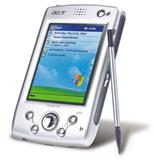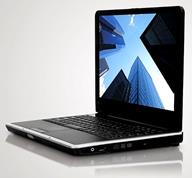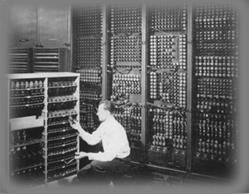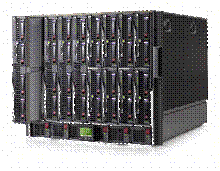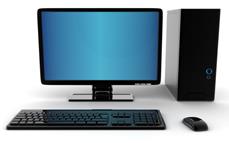|
|
Do you know the different types of computers?PC The personal computer (PC) defines a computer designed for general use by a single person. While a Mac is a PC, most people relate the term with systems that run the Windows operating system. PCs were first known as microcomputers because they were a complete computer but built on a smaller scale than the huge systems in use by most businesses. Desktop A PC that is not designed for portability is a desktop computer. The expectation with desktop systems are that you will set the computer up in a permanent location. Most desktops offer more power, storage and versatility for less cost than their portable brethren. Laptop Also called notebooks, laptops are portable computers that integrate the display, keyboard, a pointing device or trackball, processor, memory and hard drive all in a battery-operated package slightly larger than an average hardcover book. Netbook Netbooks are ultra-portable computers that are even smaller than traditional laptops. The extreme cost-effectiveness of netbooks means they’re cheaper than almost any brand-new laptop you’ll find at retail outlets. However, netbooks’ internal components are less powerful than those in regular laptops. PDA Personal Digital Assistants (PDAs) are tightly integrated computers that often use flash memory instead of a hard drive for storage. These computers usually do not have keyboards but rely on touchscreen technology for user input. PDAs are typically smaller than a paperback novel, very lightweight with a reasonable battery life. A slightly larger and heavier version of the PDA is the handheld computer. Workstation Another type of computer is a workstation. A workstation is simply a desktop computer that has a more powerful processor, additional memory and enhanced capabilities for performing a special group of task, such as 3D Graphics or game development. Server A computer that has been optimized to provide services to other computers over a network. Servers usually have powerful processors, lots of memory and large hard drives. The next type of computer can fill an entire room. Mainframe In the early days of computing, mainframes were huge computers that could fill an entire room or even a whole floor! As the size of computers has diminished while the power has increased, the term mainframe has fallen out of use in favor of enterprise server. You’ll still hear the term used, particularly in large companies to describe the huge machines processing millions of transactions every day. Supercomputer This type of computer usually costs hundreds of thousands or even millions of dollars. Although some supercomputers are single computer systems, most are comprised of multiple high performance computers working in parallel as a single system. The best known supercomputers are built by Cray Supercomputers. Wearable Computer The latest trend in computing is wearable computers. Essentially, common computer applications (e-mail, database, multimedia, calendar/scheduler) are integrated into watches, cell phones, visors and even clothing. For more information see these articles on computer clothing, smart watches and fabric PCs.
8. Match the computer type and its picture:
Grammar Section Времена группы Perfect
Глаголы в формах Perfect выражают действие завершенное, приведшее к определенному результату (или к отсутствию результата). Можно сказать, что с помощью форм Perfect мы подводим итоги определенному периоду времени, определенных действий. Время подведения итогов - либо настоящий момент (Present Perfect), либо момент в прошлом (Past Perfect), либо - в будущем (Future Perfect). I have written the letter. (Present Perfect) — Я (только что) написал письмо (передо мной письмо как результат). I had written the letter when he came. (Past Perfect) — Я написал письмо, когда он пришел. (2 действия, одно завершилось раньше другого) I will have written the letter by 10 o'clock tomorrow. (Future Perfect) — Я напишу письмо к 10 часам завтpa. (действие завершится к определенному моменту времени в будущем). |
|


